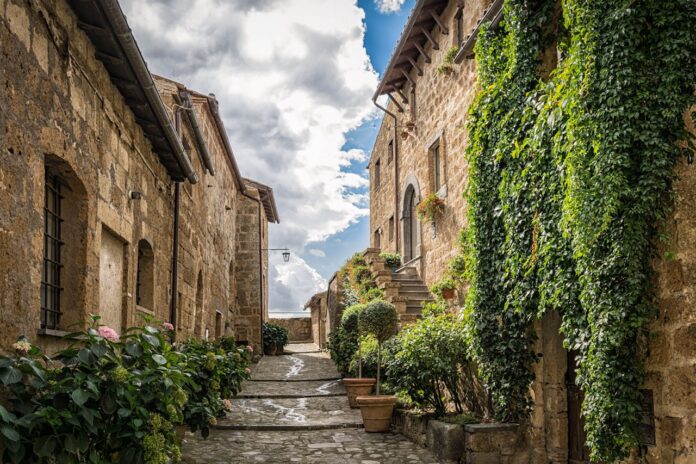Mediterranean homes promise more than a getaway. For many, they represent an opportunity to build a side income while owning a slice of coastal beauty.
But is 2026 the right time? Markets are evolving. Tourism trends shift demand. Local laws complicate short-term rentals in some regions, while tax benefits remain attractive elsewhere.
Stick around, and you’ll learn what’s shaping this market, from off-peak strategies to balancing risks like currency fluctuations.
Image Source: Pexels
Understanding Tourism Demand in the Mediterranean Region
Mediterranean tourism stays robust, with up to 665 million people estimated to have visited the region in 2025, fueled by its unique mix of history, culture, and coastline. However, trends show growing interest in smaller towns over crowded hotspots. Remote workers also favor extended stays during cooler months.
Sustainability concerns drive travelers toward eco-friendly lodging options, such as Mediterranean homes. Family-friendly homes with amenities often command premium rates during peak seasons.
Diversified appeal keeps demand steady across various demographics, whether that’s singles seeking adventures or retirees enjoying leisure travel. Owners benefit from these shifts but should adapt offerings to cater to emerging preferences for quieter, more sustainable experiences year-round rather than solely relying on traditional summer influxes.
Navigating Local Rental Regulations and Taxation Policies
Mediterranean countries enforce strict rental laws to manage tourism impacts. Some regions require short-term rental licenses or limit rental days per year, complicating income strategies.
Tax policies vary, and Greece taxes short-term earnings differently from Spain or Italy. Owners must stay informed about legal compliance to avoid penalties.
As a result, you need expert help. For instance, it’s useful to find your home in Greece with the guidance of a local agent who understands zoning restrictions, licensing needs, and tax implications. Partnering with professionals simplifies processes and ensures you meet all requirements before listing your property for rent in a foreign market environment.
Addressing Currency Risks and Their Impact on Income Stability
Owning Mediterranean homes means dealing with fluctuating exchange rates, especially for non-Eurozone investors. Income from Euro-based rentals can lose value when converted to other currencies during unfavorable periods.
To reduce risk, some owners maintain a Euro account for expenses or schedule currency exchanges when rates are favorable.
Long-term leases in the local currency may also stabilize income against short-term rate swings. Financial tools like forward contracts help lock in preferred exchange rates, reducing unpredictability over time. Staying proactive ensures foreign income remains predictable despite the natural ebb and flow of international currency markets, which affects profits directly.
Leveraging Shoulder Seasons for Higher Occupancy Rates
Peak summer attracts tourists to Mediterranean properties, but shoulder seasons, meaning spring and autumn, offer untapped income potential. Travelers seek fewer crowds and better prices during these months.
Owners can appeal by highlighting unique benefits such as mild weather, seasonal festivals, or local wine harvests. Offering discounts for longer stays incentivizes bookings beyond the high-season rush.
Remote workers favor quieter periods, especially when paired with strong Wi-Fi and work-friendly spaces. Adjusting rental pricing to reflect seasonal demand makes properties competitive year-round, reducing vacancy risks associated with traditional summer-centric strategies that have historically prioritised peak profits in Mediterranean rental markets.
Managing Costs: Breaking Down Fees from Managers to Maintenance
Running Mediterranean homes as rentals involves various costs that impact profitability. Property managers often charge 20-30% of rental income for services like guest check-ins, cleaning, and maintenance oversight.
Routine upkeep, including pool cleaning, garden care, or appliance repairs, adds recurring expenses. Utilities can spike during tourist stays if not capped in contracts.
Local property taxes and community fees also require budgeting, and must be considered part of what it takes to get the legal side of setting up a business in check. Hiring reputable vendors ensures work is done properly, but it might come at a premium cost. Tracking all these outflows helps owners maintain clarity on their actual net income while avoiding unexpected financial strains throughout the rental ownership process entirely.
The Bottom Line
Mediterranean homes offer a tempting mix of lifestyle and income potential. Yet, navigating market demands, legalities, and costs requires careful planning.
Balancing risks with innovative strategies ensures sustainable earnings. With informed decisions and local expertise, these properties can become thriving sources of both joy and financial growth.
Find a Home-Based Business to Start-Up >>> Hundreds of Business Listings.















































